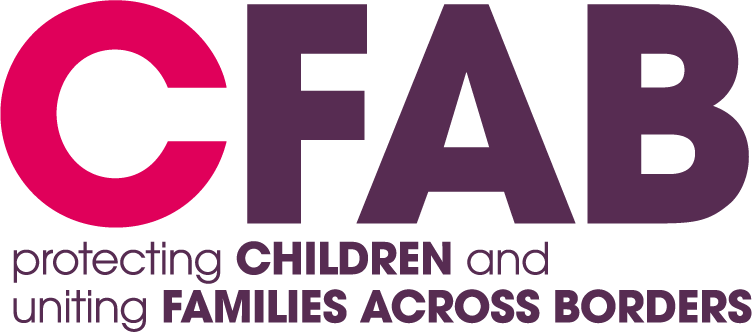Over 250 social work, family law and policy professionals attended this year’s International Child Protection Conference on Monday 23rd November – the first ever to be hosted online.
This year’s event marked the 65th anniversary of CFAB and was hosted in collaboration with King’s College London National Institute for Health Research (NIHR) Health & Social Care Workforce Research Unit.
A wealth of issues, including international kinship care, international child abduction, international surrogacy and international adoption were covered during a packed morning agenda.
Sir Andrew McFarlane, President of the Family Division was introduced by David Jones, International Chair, BASW, to open the Conference with remarks on the challenges for stretched family courts, working through increased demands under the conditions of a global pandemic.
Sir Andrew reflected on the scale of tasks ahead in protecting children and enacting justice as Brexit now compounds COVID-19 and how the system was coping, despite the pressures.
Dr Mary Baginsky of King's College London National Institute for Health Research (NIHR) Health & Social Care Workforce Research Unit was set to speak on Social Work in a globalised world – although IT issues meant that we were unable to hear her words – a great loss and we hope to showcase her segment in another format.
Professor Shereen Hussein, from the University of Kent took the floor to discuss the implications of Brexit on social work practice. Professor Hussein reflected that the UK’s proposed points-based system impacts on global migration, adds to existing challenges for EU families involved in social care, and affects the supply and demand of social workers themselves. There will be an increased workload when supporting EU families and many fast-paced changes to policy and legislation to manage.
International social work was identified as a patchily implemented element of practice despite increasing need. Recommendations were made that a UK workforce must be more consistent at both curriculum level and operational level, to better address the needs of local populations across geographical regions and to close gaps between standards of practice.
Dr Marilyn Crawshaw, Chair of the Project Group on Assisted Reproduction (PROGAR), BASW, talked on the rights of children within the complex landscape of international surrogacy. Dr. Crawshaw discussed the challenges inherent in rising global case numbers and highlighted a range of lifelong implications for children with regards to their genetic donor, gestational and ‘intended’ parents. Dr Crawshaw also illuminated the significant danger of commercial exploitation already taking place in a global ‘marketplace’ approach.
After a swift break, Carolyn Housman, CEO of CFAB and Satwinder Sandhu, CEO of IAC led an interactive discussion together on international adoption and connected persons. The talk highlighted that more children are born in the UK than ever before with connections abroad, that there were 96,000 Looked After Children in the UK in 2019 – and only 43 were placed with family overseas. The talk highlighted the urgent need to raise both awareness and scope for international kinship care on the national social care agenda.
Alison Shallaby of Reunite and Roz Osborne of Global ARRK took up the baton to discuss international abduction. The devastating impact on children abducted by parents was clear, with a message for professionals that ‘prevention is better than cure’ in managing risks. Domestic abuse and child abduction are most often linked – professionals need to both remove children from immediate risks, and contextualise further around possible risks of abduction.
Following another short break, we welcomed Hugh Salmon, the Director of the Global Social Service Workforce Alliance. Mr Salmon gave a thorough overview of the aims of the Alliance, the challenges that have been faced by the Social Services Workforce during the pandemic and examples of adaptation and innovation that have been developed as a result.
Mr Philippe Lortie, the First Secretary at The Hague Permanent Bureau discussed strategic directions of the HCCH and the role of the HCCH Conventions in the UK. This talk highlighted the forthcoming changes to legislation and the impact on UK’s procedures and decisions.
Closing remarks by David Jones summarised that every ‘case’ is a family in crisis. Complex circumstances can be either improved or rendered more difficult by social work and legal practice. Carolyn Housman reiterated the services available to professionals and thanked all attendees for an engaged debate throughout the Conference.
For the full recording of the event click here


